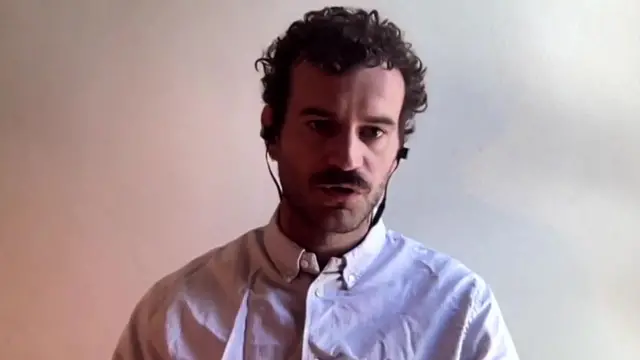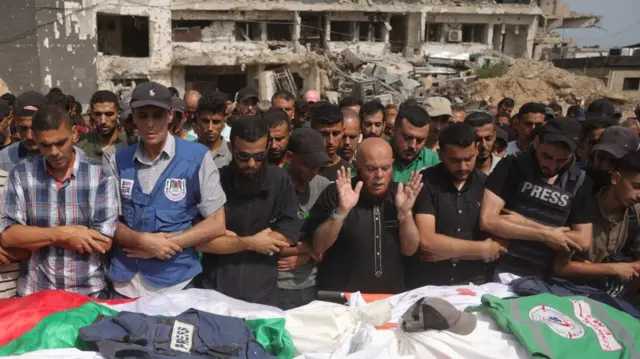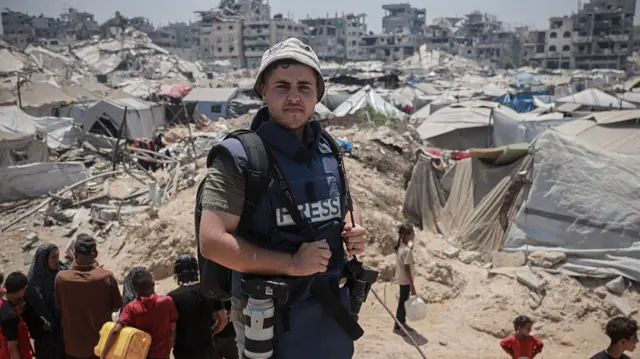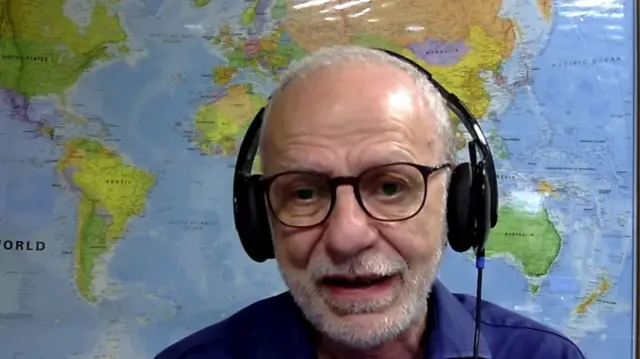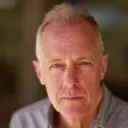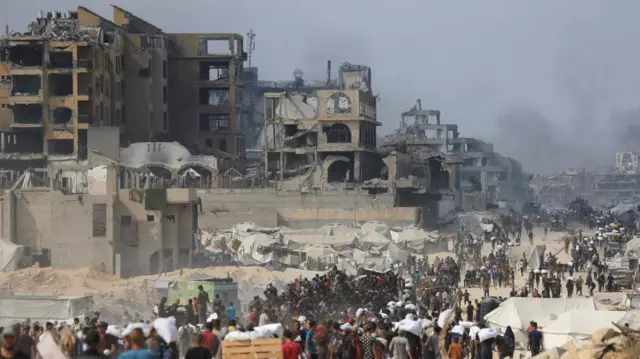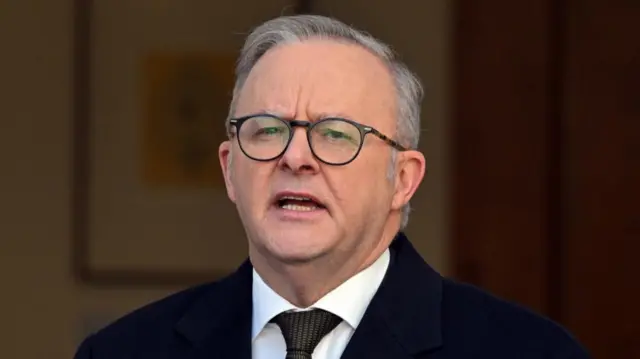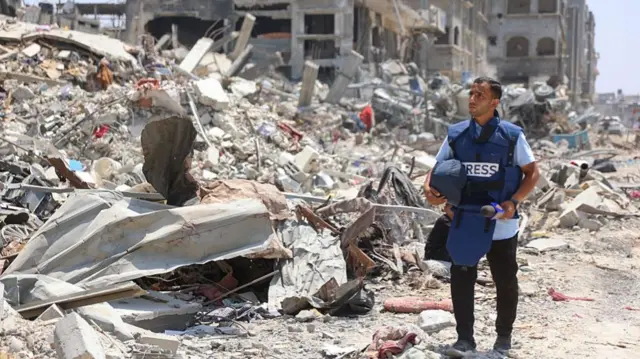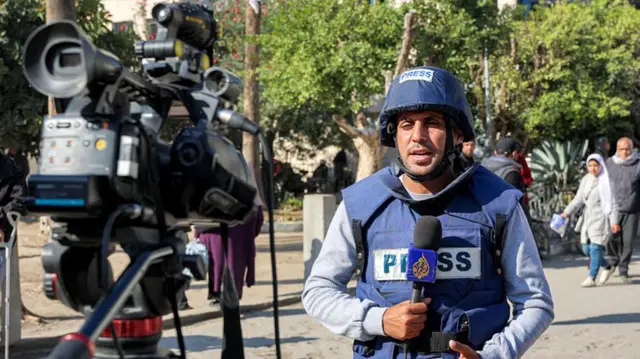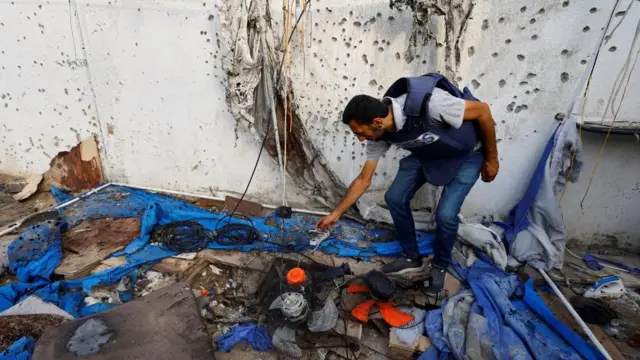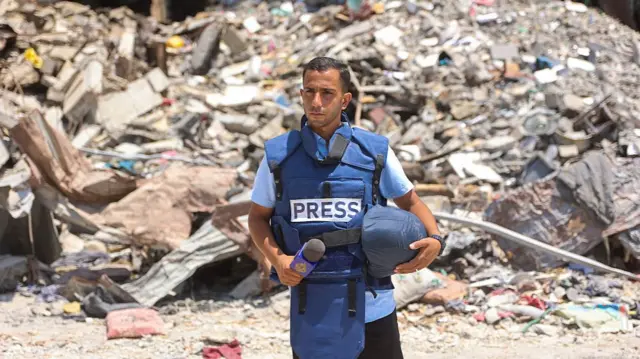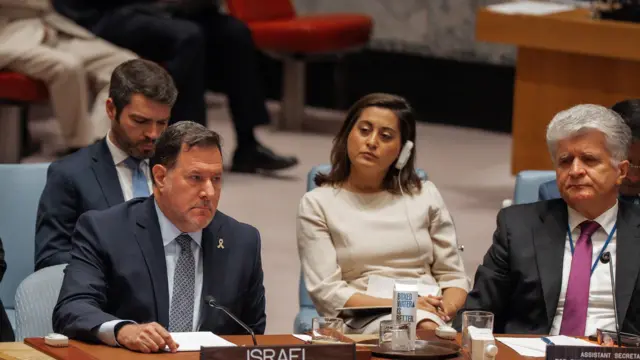Five more die of malnutrition in Gaza, Hamas-run health ministry sayspublished at 11:53 BST 11 August
In the past 24 hours, five more people have died due to malnutrition, according to the latest update from the Hamas-run health ministry.
This brings the total malnutrition deaths to 222, it says in its latest update.
The UN's humanitarian agency said on Friday that the amount of aid entering Gaza continues to be "far below the minimum required to meet people's immense needs".
Israel has denied there is starvation in Gaza and accused UN agencies of not picking up aid at the borders and delivering it - the UN's humanitarian agency says it continues to see impediments and delays as it tries to collect aid from Israeli-controlled border zones.
